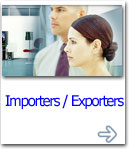
How Important Is Accurate Tariff Code Classification?
- correct payment of duty and tax;
- duty/tax exemption received (for certain goods), provided all other conditions are satisfied;
- awareness of the eligibility of lower duty or duty free from the various Free Trade Areas (FTA); and
- if you need an import or export license.
- payment of any arrears plus interest, of duties and tax over at least the previous 7 years; and
- your goods being delayed and/or seized.

Is Your Forwarders / Logistic Service Providers Providing Up-To-Date Customs Tariff Guidelines And Rates To You?
- You are overpaying duty because of inaccurate classification of your imports.
- You need to identify legal or financial liabilities of classification discrepancies. You bear the risk of legal liabilities associated with any misclassification of products that you bring into the country as the importer of record, even if your HS Classification is actually done by a third party.
- You need to identify business opportunities to source or sell your products with countries offering preferential tariff arrangements.
- You need to reduce the likelihood that shipments will be delayed at customs because of improper or untimely product information.
- You need to meet government requirements to participate actively and use diligence in preparing your customs declarations.
Correct, consistent, legally defensible tariff classifications are at the heart of Import Compliance. You are responsible for ensuring that proper HS numbers are used for all your imports. You can’t afford classification mistakes and inconsistencies resulting from a lack of systemic controls over tariff classification procedures.
Finding the best classification can be complicated, especially in the case of specialized. products. A quick glance at recent Tariff Rulings will show that the classification practices can barely keep up with the flood of new materials and product ideas now appearing in the world marketplace. Classifying an item may require technical specifications from your supplier and advice from your broker as well as extensive research in the HS schedules, Rulings and other resources. And once all this research is done, you want to preserve the results and ensure that this HS code is always used by both your own personnel, in all of your locations or divisions and your broker.
Leverage Your Product Knowledge into Lower Import Duty Costs
A review of companies’ past imports usually shows that they paid too much duty because they did not make use of available customs duty reduction provisions. Finding the correct HS Tariff Code is key to the ability to take full advantage of the duty rate reductions available through preferential tariff programs (AHTN ATIGA, Asean-China FTA, Duties Exemption Orders, etc.). The lower import duties available through these programs can significantly decrease your landed costs. Why pay more customs duty than you need to? You know the details of your product specifications and trade arrangements. By finding and comparing alternative Harmonized System Code and tariff treatment scenarios you can leverage this knowledge into significant savings.
Tariff Finder addresses the following key challenges:
- Identify preferential trading agreements (for instance, Asean-China FTA, AHTN ATIGA, etc) and other advantageous conditions for profitable international sourcing and selling opportunities.
- Improve your decision-making process for any global procurement issue: component selection, sub-contractor selection, manufacturing location, distributor networks, among others.
- Manage your price positioning and customer relationships with accurate landed cost calculations.

